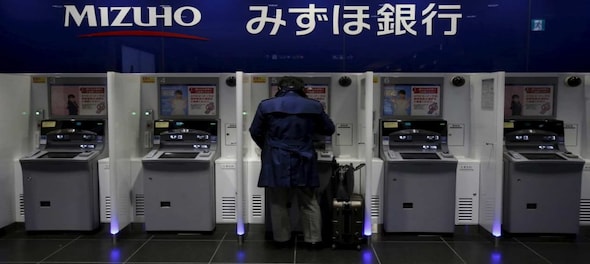
Japan revised economic data higher, reversing a quarterly contraction into positive growth and thereby avoiding a technical recession, an outcome that supports the case for the central bank to end its negative interest rate policy this month or next.
Gross domestic product expanded at an annualized pace of 0.4% in the final three months of last year, the Cabinet Office reported on Monday, reversing a 0.4% retreat initially reported. Economists had forecast the updated report would show 1.1% growth. An upward revision to capital investment figures to reflect 2% growth was a key driver.
Monday’s data support the Bank of Japan’s view that the economy continues to recover moderately with companies willing to invest. A majority of economists expects the BOJ to scrap the negative interest rate with its first hike since 2007 in March or April. Encouraging signs of wage growth this year have increased bets on the rate hike coming on March 19, when the bank concludes its next policy meeting.
Strong corporate capital investment, reported earlier in another report, powered growth last quarter, pushing the economy back into expansion. Consumer spending, on the other hand, was revised to show a slightly deeper decline at 0.3%.
Inflation has continued to outpace wage gains this year, putting a burden on household budgets and crimping outlays.
The yen was little changed after the data, while volatile overnight swaps that signal rate expectations showed a 65% change of the BOJ hiking in March, also largely unmoved.
The focus is now on annual pay negotiations between companies and labor unions, which will culminate with results from the biggest union group, Rengo, on March 15, the last business day before the BOJ starts its two-day gathering. The constituents of the union federation have demanded on average the biggest pay hike since 1993, at 5.85%, compared with demands for a 4.49% increase a year ago.
BOJ Governor Kazuo Ueda has repeatedly cited the importance of the wage negotiations as a catalyst for a virtuous wage-price cycle that would signal its price goal is achieved, and enable the bank to normalize its policy settings. Board member Hajime Takata said the price target is “finally” coming into sight, boosting market bets on a March move.
Prime Minister Fumio Kishida is monitoring trends in consumption and wages as a key to judging whether the country has finally overcome deflation. The premier reportedly plans to meet with business leaders and union leaders this week for a final push.
Check out our in-depth Market Coverage, Business News & get real-time Stock Market Updates on CNBC-TV18. Also, Watch our channels CNBC-TV18, CNBC Awaaz and CNBC Bajar Live on-the-go!


'Borrowed' leaders: Congress hits out at AAP for not fielding their own candidates in Punjab
Apr 28, 2024 9:53 PM
EC asks AAP to modify election campaign song and Kejriwal's party is miffed
Apr 28, 2024 9:25 PM

